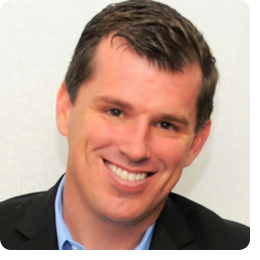*This post was shared by OAC National Board Member Ted Kyle, RPh, MBA, on his daily blog at ConscienHealth.
Obesity is not only a complex disease but also a complex topic. Everybody thinks they know all about it. But in truth, the brightest minds who study obesity know how little we actually know.
However, at the opening of ObesityWeek 2020 (taking place now from Nov. 2-6), all of that abstract science is coming face to face with humanity. Perhaps more than we’ve ever seen before, the lived experiences of people with obesity are gaining equal footing with science.
A Very Different Opening
Typically, the opening session at ObesityWeek is very formulaic. First comes the ceremonial stuff. Then comes a big distinguished expert. However, the script was a bit different this time. Of course, President Lee Kaplan did a little bit of the ceremonial stuff. He dished out a few awards – one even going to OAC Board Member Ted Kyle, RPH, MBA.
Before that, we received a real treat. Concise presentations – 10 minutes each – offered a snapshot of important issues in obesity research and clinical care. The presenters were compelling and clear. The subjects ranged from genetics, biology, and medicine to advocacy and systemic racism.
Jamy Ard offered up a brilliant summary of the disparities in health that fuel disparities in obesity. These disparities are not by chance. They are by design, he said. “One of the most informative talks I have ever heard,” said Sarah Deemer. Ard went to the root of the problem – health used as a tool for centuries against racial and ethnic minorities. He offered realistic and hopeful words from James Baldwin:
“Not everything that is faced can be changed. But nothing can be changed until it is faced.”
Elevating People

The default in obesity is to diminish the people who live with it. Stigma and bias are prevalent. When treatment fails, clinicians often presume patients are non-compliant. Some surgeons still label a relapse of weight gain after surgery as recidivism.
But the opening session of ObesityWeek 2020 made it clear. Things are indeed changing. OAC’s President and CEO, Joe Nadglowski, offered one of those concise presentations to set the tone for the week. He called for everyone in the field to amplify the voices of people living with obesity. He told us that science and humanity must complement each other as we pursue solutions.
Stepping Up
Kaplan brought it all together in his presidential lecture. He described the gaps between aspirations to reduce the health impact of obesity and the results we are seeing. The problem is growing worse, not better. This stands in sharp contrast to diabetes, cancer, and heart disease.
We must step up our game, he said. We have to elevate the rigor of the science. And perhaps most important, we must eliminate the stigma, prejudice, and discrimination that is so dominant in the lives of people with obesity. It is blocking the way to progress.
Click here for Joe Nadglowski’s presentation on amplifying the patient voice. Follow #OW2020 on Twitter this week if you want to know the latest from this outstanding meeting.
*As ObesityWeek 2020 news stories, research, studies, and more come out, OAC will break down the information and share it with you. Stay tuned!*
